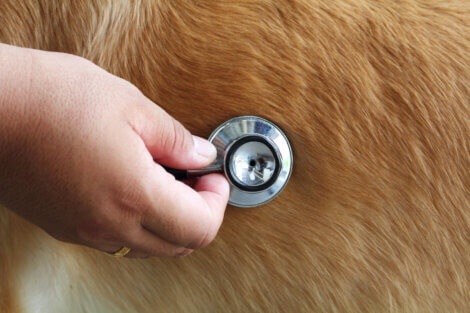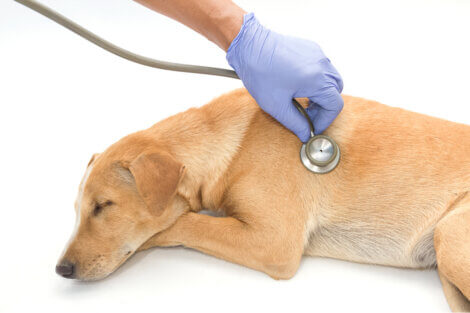Three Different Treatments for Pneumonia in Animals

Illnesses involving the respiratory system are very common. Although pneumonia might not be the most common condition in animals, it’s one to watch out for as it can have serious consequences.
Making sure that your pet gets the right treatment will be absolutely vital. Today, we’ll talk about the possible treatments for pneumonia in animals and what they involve.
The different types of pneumonia in animals
Pneumonia is defined as inflammation of the pulmonary parenchyma. It isn’t an overly common condition amongst house pets, but it can be very serious for those that get it.
There are various types of pneumonia depending on the cause, split into three categories:
- Bacterial pneumonia: This is when the inflammation is caused by harmful bacteria in the lung tissue. This causes fluid and cells to build up in the airways and alveoli.
- Fungal pneumonia: This is caused by fungal organisms growing in the lung tissue. The alveoli are the perfect environment for them to grow.
- Allergic pneumonia: This is when the inflammation is the result of antigens. These can be parasites or allergens in the air, like pollen or spores.
As each type has a different cause, the treatment obviously needs to be different. Below, we’ll explain the treatments for each type of pneumonia in pets.

1. Treating bacterial pneumonia
As with any condition relating to the proliferation of harmful bacteria, the main treatment involves the administration of antibiotics. These can either be in the form of a pill or an injection.
It’s best if the antibiotic is chosen based on a culture and an antibiogram. Antibiograms have shown much better results for the animal’s recovery. However, it’s possible to use a broad range of antibiotics.
In addition to this, it’s important to keep your pet hydrated in order to help them get rid of the mucous and secretions. The administration of intravenous electrolyte solutions is a good idea, and the use of aerosols is also effective.
2. Treating fungal pneumonia
Fungal pneumonia is especially complex to treat and only a certain proportion of animals respond well to treatment. As a result, it’s important to be extremely careful.
Since we’re dealing with fungal organisms, it’s important to use very specific medications. Antifungal drugs will be a fundamental part of treatment, and you’ll need to interrupt this treatment for at least two months.
Once your animal has recovered, it’s a good idea to continue with their medication for a further week or two to avoid relapses, which tend to be common. This is a slow and expensive treatment, but it’s absolutely necessary.
3. Treating allergic pneumonia
The main way to treat allergic pneumonia is with corticosteroids like prednisolone or prednisone. Other immunosuppressors can also be helpful, like cyclophosphamide or azathioprine.
This type of drug is very good at reducing the inflammation and the associated symptoms, helping your pet to breathe normally again.
However, if the pneumonia is caused by cardiac parasites, it’s best to get a more specific treatment that treats and controls the associated cardiovascular symptoms.
In general, most animals make a full recovery. However, if your pet has heartworm, then the prognosis will always depend on the consequences for their cardiovascular system.

As you can see, pneumonia is a very complex and potentially fatal condition. However, the information we’ve brought you today is to ensure you’re better informed about the topic. It’s no substitution for a proper revision by your vet. If your pet is suffering from a respiratory problem, go straight to a professional for diagnosis and treatment.
All cited sources were thoroughly reviewed by our team to ensure their quality, reliability, currency, and validity. The bibliography of this article was considered reliable and of academic or scientific accuracy.
- CUNNINGHAM: FISIOLOGIA VETERINARIA (5ª ED.)
